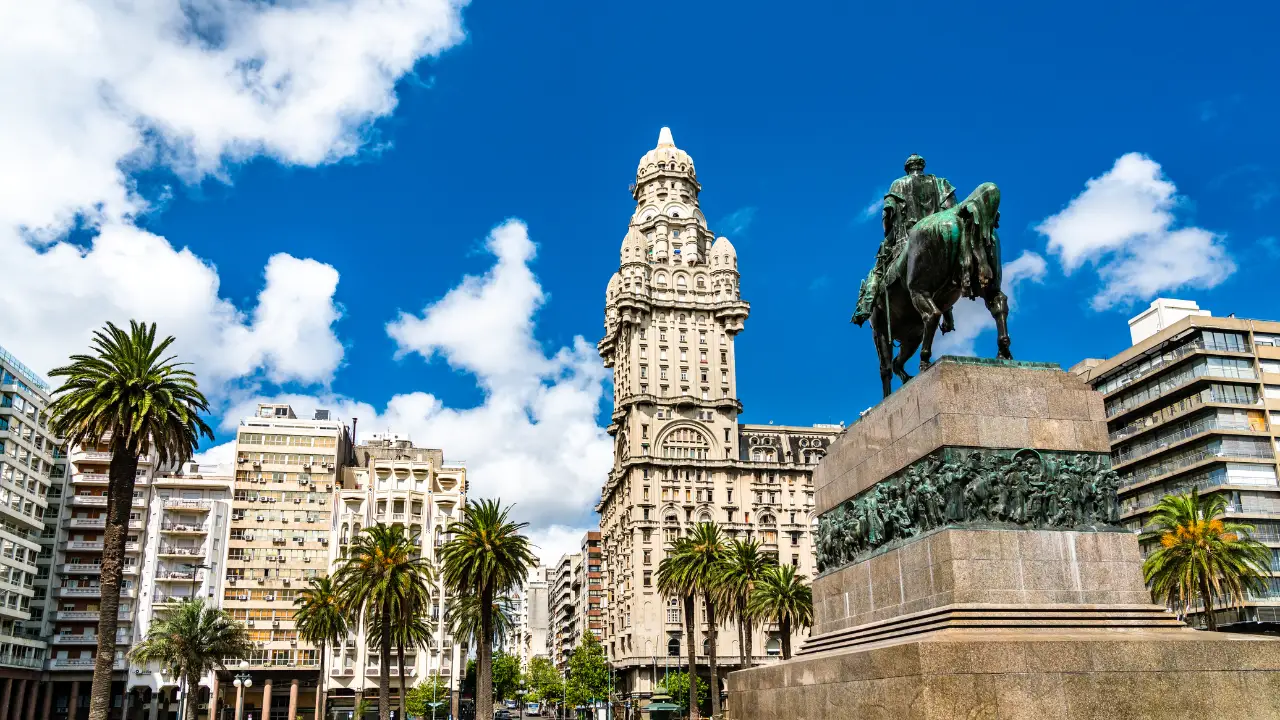Uruguay, often overshadowed by its larger neighbors Argentina and Brazil, has quietly become one of the most appealing countries in Latin America for those seeking a reliable second passport through legal residency. With a stable democracy, modern infrastructure, and a pragmatic immigration system, Uruguay offers a rare combination: citizenship that is attainable without significant investment, excessive bureaucracy, or lengthy delays.
In this article, we explore how Uruguay’s residency and citizenship framework works, who it’s ideal for, and why it’s increasingly attracting the attention of globally mobile individuals.
How Citizenship by Residency Works in Uruguay
Unlike many countries that offer citizenship only after many years of residency or require major financial investments, Uruguay provides a relatively straightforward legal path. Foreigners who obtain legal residency and demonstrate a genuine connection to the country can apply for citizenship in just three years (or two years if they relocate with their family).
Here’s a breakdown of the typical steps:
- Legal Residency: Applicants start by securing legal residency status, usually based on proof of income or financial means. This does not require purchasing real estate or making a large donation—simply showing sufficient resources to live in Uruguay.
- Physical Presence Requirement: Uruguay places strong emphasis on actual presence. To qualify for citizenship, residents are expected to spend a significant portion of each year in the country. While the law doesn’t define an exact number of days, the courts generally expect a pattern of real residence and integration.
- Integration and Documentation: Applicants must demonstrate ties to Uruguay. This includes renting or owning property, engaging in local life, having social connections, and showing integration into Uruguayan society.
- Citizenship Application: Once the minimum time is met, a citizenship petition is submitted to the civil court. Unlike many countries, Uruguay’s naturalization process is judicial rather than administrative, meaning a judge will ultimately assess whether the applicant meets the criteria.
- Passport Issuance: Upon approval, applicants are granted full citizenship, including the right to vote and hold a Uruguayan passport.
Strength of the Uruguayan Passport
Uruguay’s passport is one of the strongest in Latin America. Citizens enjoy visa-free or visa-on-arrival access to over 150 countries, including the European Union (Schengen Zone), the United Kingdom, Russia, South Korea, and almost all of the Americas.
Other advantages include:
- No obligation to renounce existing nationality (Uruguay permits dual citizenship)
- No language test or formal civic exam
- Citizenship can be passed to children born abroad
- Protection of rights under a well-established democratic legal system
Who Should Consider This Path?
Uruguay’s program is particularly well-suited for:
- Individuals who want a second citizenship without making a large financial investment
- Families interested in relocating to a safe, family-friendly country with strong public services
- Digital nomads or entrepreneurs looking for a South American base with strong legal protections
- People seeking long-term political or economic stability
It is not ideal for those who are looking for a quick passport without spending time in the country. The physical presence and integration requirements are real and enforced. However, for those open to spending meaningful time in Uruguay, the pathway is realistic and rewarding.
Key Considerations and Misconceptions
No Investment Requirement: Unlike Golden Visa programs in Europe, Uruguay does not require applicants to invest in real estate, business, or government bonds.
Residency Is Not Enough on Its Own: Holding a residency card is not the same as living in Uruguay. Citizenship is based on real presence and integration, not just legal status.
Legal Support is Essential: While the process is legally sound, it’s also nuanced. Preparing the right documentation, proving ties, and navigating the court system requires competent legal assistance.
Why Uruguay?
Uruguay ranks high for safety, quality of life, and democratic governance. It consistently scores above its regional peers on indicators like press freedom, rule of law, and personal rights. The country has a secular government, low corruption, and a tradition of openness to immigration.
For many, it offers the right balance: a peaceful place to live, work, or retire, combined with a credible and respected passport at the end of the process.
Final Thoughts
Uruguay’s citizenship by residency program is not the fastest nor the most heavily marketed, but it remains one of the most honest and achievable paths to a second passport available today. For those willing to spend real time in the country and integrate into its society, the reward is full citizenship in a nation known for freedom, stability, and global access.
If you’re exploring long-term options for mobility and security, and value substance over shortcuts, Uruguay may deserve a closer look.
FAQs
How long does it take to get Uruguayan citizenship through residency?
Uruguayan citizenship is typically available after three years of legal residency, or two years if you move with your family. Time is counted from the date of obtaining legal residency and requires actual presence and integration in the country.
Do I need to invest money or buy property to qualify for residency or citizenship in Uruguay?
No. Uruguay does not require any financial investment, property purchase, or donation. You only need to demonstrate sufficient financial means to support yourself while living in the country.
Can I keep my original citizenship if I become a Uruguayan citizen?
Yes. Uruguay allows dual citizenship, so you do not need to renounce your existing nationality when you become a citizen.
4. What are the key requirements to apply for citizenship?
You must:
-
Hold legal residency
-
Spend significant time living in Uruguay each year
-
Show integration (such as housing, social ties, or economic activity)
-
Apply through the Uruguayan civil court, where a judge evaluates your eligibility
5. Is Uruguay a good option for families or remote workers?
Absolutely. Uruguay is ideal for families, digital nomads, and entrepreneurs seeking a safe, stable, and democratic environment with strong legal protections, modern infrastructure, and visa-free travel to over 150 countries.





